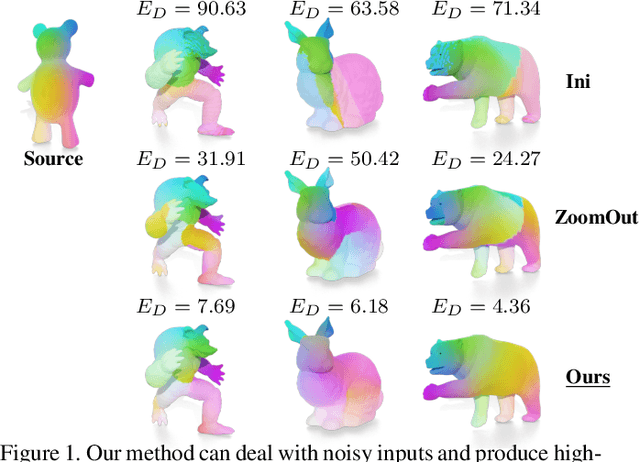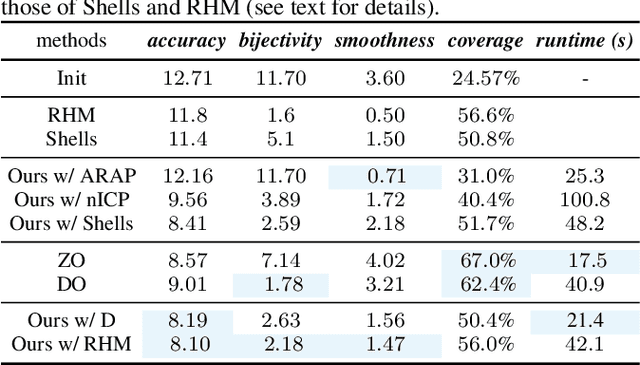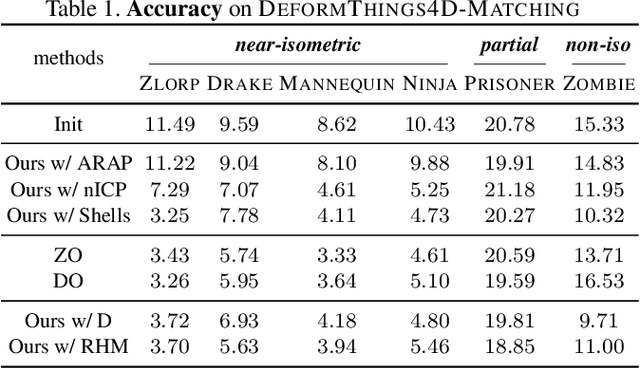Smooth Non-Rigid Shape Matching via Effective Dirichlet Energy Optimization
Paper and Code
Oct 05, 2022



We introduce pointwise map smoothness via the Dirichlet energy into the functional map pipeline, and propose an algorithm for optimizing it efficiently, which leads to high-quality results in challenging settings. Specifically, we first formulate the Dirichlet energy of the pulled-back shape coordinates, as a way to evaluate smoothness of a pointwise map across discrete surfaces. We then extend the recently proposed discrete solver and show how a strategy based on auxiliary variable reformulation allows us to optimize pointwise map smoothness alongside desirable functional map properties such as bijectivity. This leads to an efficient map refinement strategy that simultaneously improves functional and point-to-point correspondences, obtaining smooth maps even on non-isometric shape pairs. Moreover, we demonstrate that several previously proposed methods for computing smooth maps can be reformulated as variants of our approach, which allows us to compare different formulations in a consistent framework. Finally, we compare these methods both on existing benchmarks and on a new rich dataset that we introduce, which contains non-rigid, non-isometric shape pairs with inter-category and cross-category correspondences. Our work leads to a general framework for optimizing and analyzing map smoothness both conceptually and in challenging practical settings.
 Add to Chrome
Add to Chrome Add to Firefox
Add to Firefox Add to Edge
Add to Edge